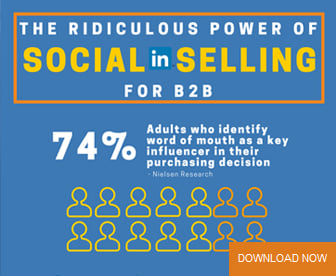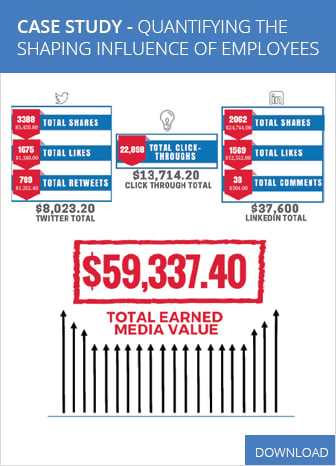Here's How Shaping Influence Drives Brands
New forms of marketing are seldom accepted with arms wide open. When online advertising first became a thing, marketers looked askance, wondering how this badly fractured media almost specifically geared toward basement-dwellers under 30 could ever possibly replace broadcast and print. Fast forward about 20 years, and we've seen how well it works. Now, we're having a similar moment about social media marketing, and new studies are showing how shaping influence can be a big gain for marketers.
Travel brands, for example, routinely turn to shaping influence as a means to connect with users on social media, going after some fairly large blocks—some social media profiles have sufficient numbers to match viewership of some broadcast television shows—of rather well-targeted viewers via the medium. Travel brands weren't the only ones involved, however, as the studies from TapInfluence and Altimeter found.
Of particular note here is the number of issues involved in shaping influence as a marketing tool. Brands who have previously worked with social media figures in marketing have actually found they've made a number of mistakes following a campaign, particularly in terms of being overly restrictive about content published, requiring drafts of every post—this is a standard “vetting process” approach, a method which worked well for broadcast and print media but doesn't work so well in the midst of a marketing environment that depends on its authenticity—and not providing sufficient time for the campaign to run. Easily the biggest issue—and this is one that should make influencers smile—is that most agreed they weren't paying enough for the access.
The most crucial issue to both influencers and marketers alike is authenticity—a lack of it can completely destroy a marketing operation—and that's ahead of things like consistency, interaction, and even proper market targeting. An authentic influencer is the most desirable influencer, and that's a point that should be closely considered. Brands most typically want sponsored content to reach influencers' audiences—given the recent issues with the Federal Trade Commission (FTC), that's not a real surprise—though product reviews aren't far behind, followed up by ambassadorships and affiliate links.
This is a lot to take in, but in the end, what really matters is this: in shaping influence, authenticity is the key to success. We're talking about a market where people actually seek out the content in question, and thus the promotional opportunities therein. Marketers have to understand this; while online advertising today is targeted and tracked and controlled within an inch of its life, social media marketing cannot be so done for risk of contaminating the whole process, and it really is a contamination. That contamination causes viewers to flee like deer from a tainted watering hole, and with them goes the social media influencer's value.
Edited by Alicia Young











